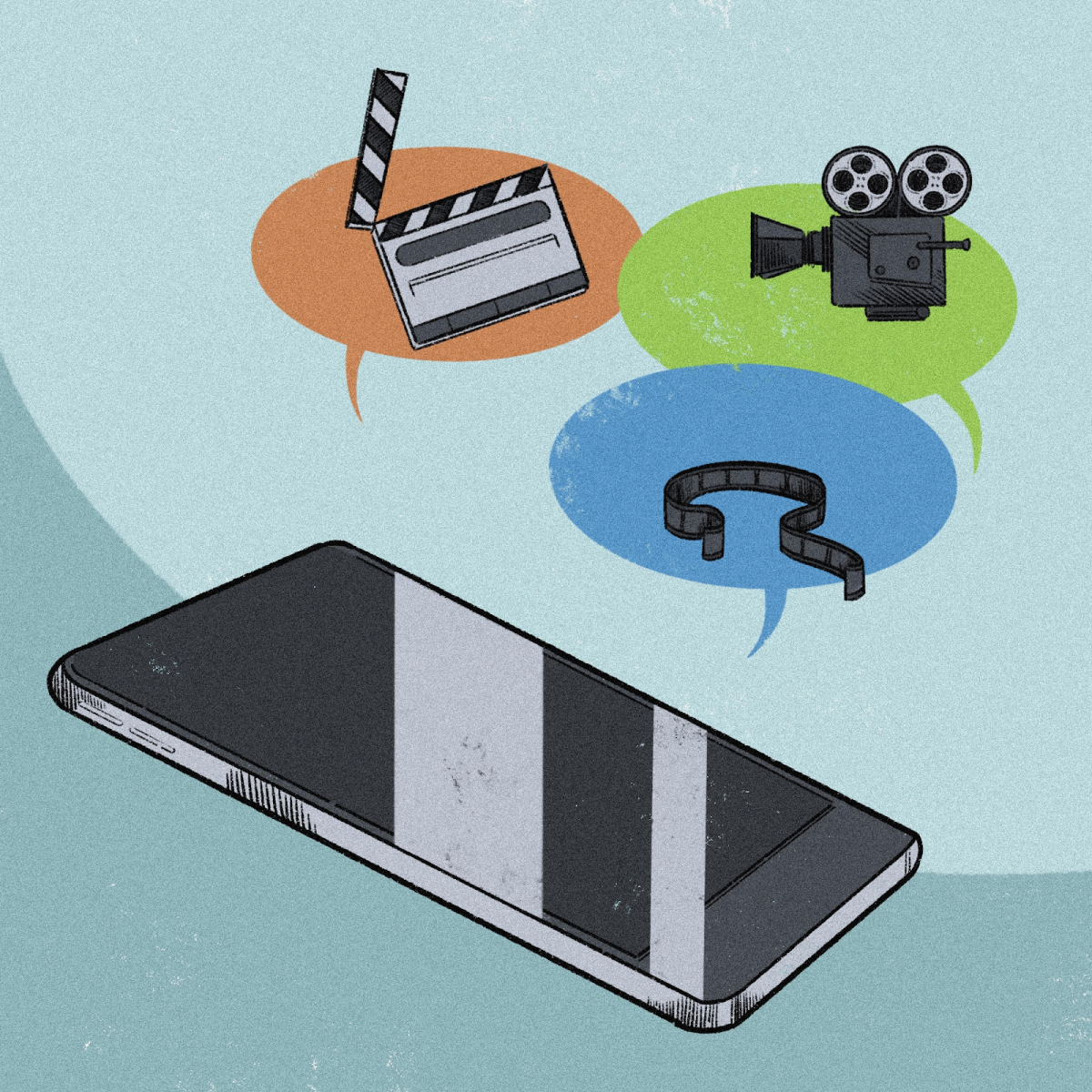Dubbed “Goodreads” for film by many, Letterboxd’s fan base has risen tremendously in the past few years; it’s grown “[from] 5 million users in 2021 to over 11 million at the end of 2023,” according to Mashable, a multi-media entertainment platform. Letterboxd’s growth can likely be attributed to film culture’s renaissance, originating from the COVID-19 lockdown of 2020. The advent of the internet has transformed the world in recent decades. Social media in particular has taken over our lives, affecting how we think, feel, and act. A popular app among movie lovers, Letterboxd has gone from niche to mainstream, transforming how we criticize films and revitalizing the industry. Letterboxd has changed how users view and evaluate movies, plays a role in movie promotions, and also affects ad content users see on other social media platforms.
One draw of Letterboxd is that all reviews are public, causing many to hop on the bandwagon. This feature enables viewers to read countless opinions about a movie before the public has even watched it. “I love reading other people’s [Letterboxd] reviews on my favorite movies, because they never fail to make me laugh,” says Kenya Sogaw, an active film and Letterboxd enthusiast, under the username ks333 on the platform. “[Especially] when one person reviews a movie pouring their whole heart out into an essay, and another person makes the stupidest joke.” When asked about how Letterboxd affects her opinions about films, Sogaw comments, “If I don’t read reviews before I watch a movie, I’m not as critical.” Not reading reviews or being up to date on the latest news surrounding a franchise can give the viewer a more unbiased opinion. Sogaw has noticed that when she watches a film without prior expectations and reads a review afterward, her opinion changes.
Viewers have started watching films through critical lenses, with strong opinions on mainstream ideologies, in large part due to our participation on social media. A study conducted by Dr. Michael Workman, the associate professor of technology management at Texas A&M University, found that social media can affect bias. Based on his findings, Workman states, “Social media users should educate themselves about the influences of social media, and think critically about topics before taking a stance.”
Films are meant to be interpreted. Actively searching for meaning and symbolism in films involves the viewer, therefore creating a more meaningful experience. “A major drawback of using social media platforms for analysis is the user’s reliance on someone else’s interpretation of the work to shape their thinking,” says Van Anh Bui, who teaches Social Influencing: Revolutionary Voices — a class about the influence of social media — at Franklin. “Instead of viewing people’s critique of the work as one form of interpretation, users may view similar opinions as the only right interpretation, and limit themselves to just one perspective.”
Arguably Letterboxd’s most popular aspect is Four Favorites. This feature allows users to attach their top four favorite films to their profile, which can be seen by other users. Four Favorites has now even appeared on the red carpet. The Letterboxd editorial team meets with celebrities at events and asks them what their four favorite films are. Bits of the interviews are then posted on platforms like Letterboxd, Instagram, and TikTok in an effort to publicize celebrities’ films — and the celebrities themselves. Social media gives actors closer connections to their fan base and the general public, helping them build their platform. This publicity creates excitement and leads to more people discussing actors’ soon-to-be-released films.
The popularity of a movie’s promotional content also allows film companies to gauge how successful a movie will be. Because of apps like Letterboxd, advertising within the film industry has reached new heights. By putting out captivating content and using targeted ads, film companies are more likely to reach people that will be interested in their movie. Frequently, movie trailers will go viral months before the premiere of a film, sustaining the commotion around a movie, and boosting viewers’ anticipation.
On the other hand, apps like Letterboxd can mask the reason we watch films in the first place: the experience, rather than the number of films being logged on our Letterboxd accounts. “The spotlight on statistics, accomplishments, and status has led certain users to ponder whether the joy of watching movies has been eclipsed by the competitive aspect of Letterboxd,” says Beatriz Barot from Influence Digital, a digital marketing agency.
Letterboxd has its pros and cons, but its effects on the film industry are undeniable. Letterboxd has also enabled film interpretations, both positive and negative, to reach large audiences. In a world where everything circulates around the internet, even the freedom of interpretation isn’t safe. It’s important to remember that there isn’t one correct interpretation of a film. Every viewer has their own opinions and background that form the lens through which they see the world — and the movie.



































